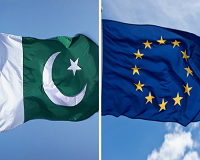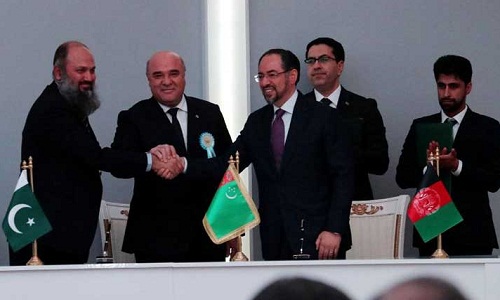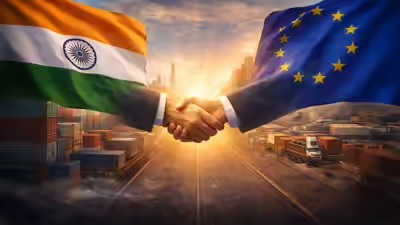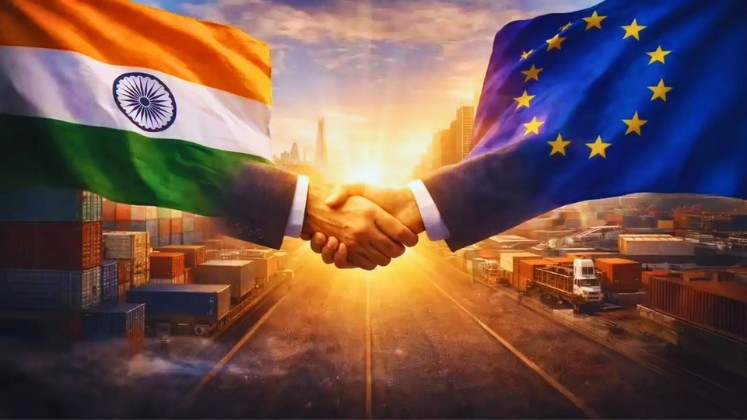"In 2012, Europe adopted GSP+. The Plus (+) is a Delegated Regulation aimed at simplifying the entry mechanism to ensure transparency and predictability of the process. When a Standard GSP beneficiary requests GSP+ status, the country has to undertake a binding commitment to the ratification and effective implementation of 27 core conventions from the United Nations (UN) and the International Labour Organisation (ILO), in areas such as human rights, labour rights, good governance and environmental justice, highlighted Henri Malosse, former president, European Economic and Social Committee."

In 2012, Europe adopted GSP+. The Plus (+) is a Delegated Regulation aimed at simplifying the entry mechanism to ensure transparency and predictability of the process. When a Standard GSP beneficiary requests GSP+ status, the country has to undertake a binding commitment to the ratification and effective implementation of 27 core conventions from the United Nations (UN) and the International Labour Organisation (ILO), in areas such as human rights, labour rights, good governance and environmental justice, highlighted Henri Malosse, former president, European Economic and Social Committee.

Pakistan was added to the list of GSP+ beneficiaries in 2014 due to devastating floods. It ratified the GSP+ Conventions but implementation has been far from effective. Since then, despite the country continuously violating norms has been a part of the pact. The European Commission, specifically The Directorate General responsible for Trade, is still considering to maintain GSP + for Pakistan without any inquiry or serious verification.
Significance of Plus
As per DG Trade, GSP+ encourages Pakistan to make great efforts to adopt international conventions – It is true, Pakistan has adopted some new laws but implemented few. The EU values fair, multilateral and rule-based order in trade arrangements, hence beneficiary countries are expected to put into practice key UN human rights and International Labour Organisation conventions. But, this rights based approach to trade is being ignored by DG Trade as it believes that suspending GSP+ will destabilise the economy, especially the textile industry, and those left unemployed may face serious hardships. The real concern should be that Pakistan has concentrated its exports in the textile sector with low-cost workers without trade union, social or labour rights of any kind. Women especially are receiving wages below the minimum standards and have no rights due to a justice system with inherent gender inequalities. While it cannot be disputed that a few companies are benefitting from GSP+ subsidies, especially those close to the Government, the benefits are not being percolated to each and every worker.
Other GSP and GSP+ accorded countries such as Bangladesh, Sri Lanka, Armenia or Colombia have been complying with the criteria. Countries such as Belarus and Sri Lanka have also borne the brunt of the stringent regulations when their subsidies were removed for non-compliance. This actually sets a benchmark for others. Even after lot many warnings, Pakistan doesn’t seem to change and the GSP+ authorities are also not removing it from the list is quite surprising, according to trade analysts.
DG Trade recognises the importance attached to the GSP + status, still no concrete measure is being taken to comply with the same. While on one hand, there are few European countries who are still exporting machinery or importing products from Pakistan, forgetting the overall negative effects on manufacturing and jobs in Europe. On the other hand, the European Union’s partner countries in the Maghreb or those countries, like Sri Lanka, who are genuinely addressing previous human rights abuses, are being ignored completely.
Complexities
The European Union is bound by Article 207 of the Treaty on the Functioning of the European Union, the EU’s common commercial policy must be conducted ‘in the context of the principles and objectives of the Union’s external action’, and that, pursuant to Article 3 of the Treaty on European Union, it must contribute, inter alia, to sustainable development, the eradication of poverty and protection of human rights. Trade is not an end in itself.












